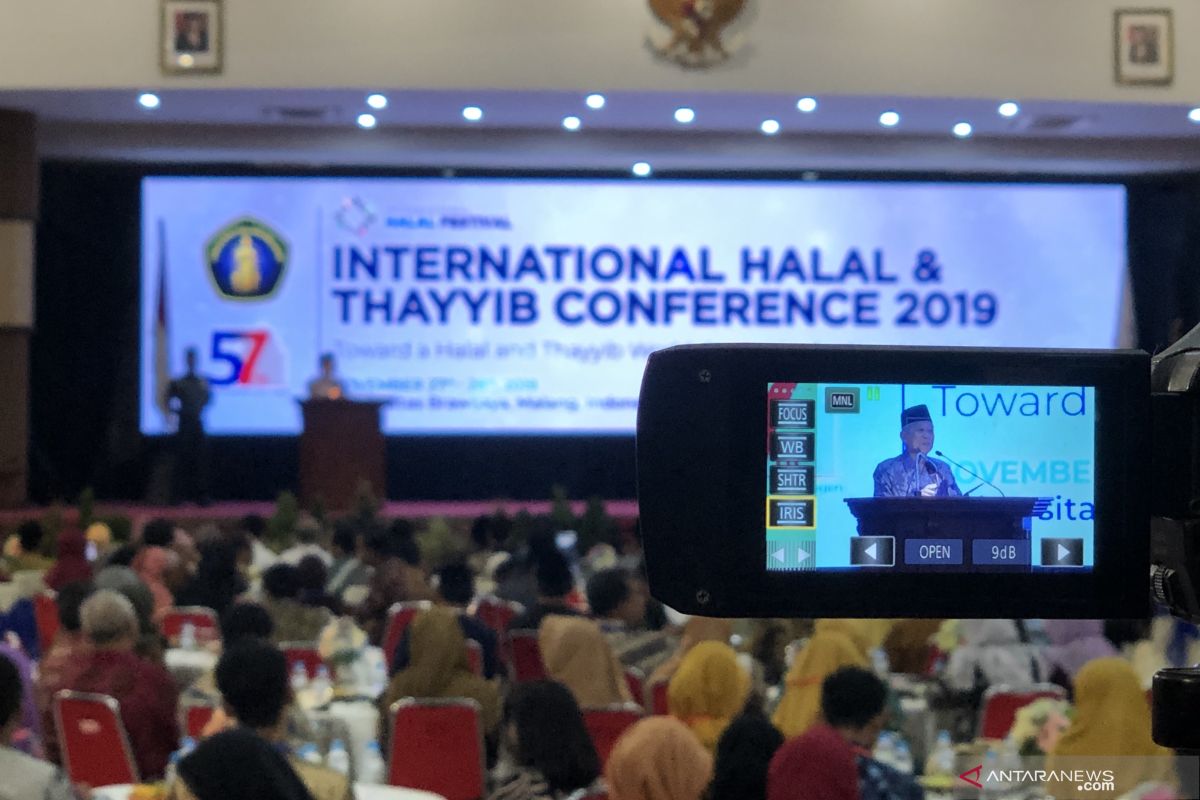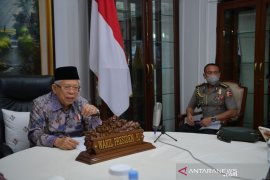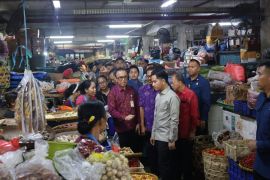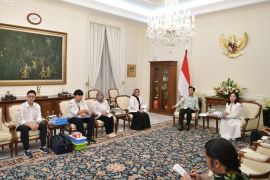"We do not want to become mere consumers, moreover just giving halal rubber stamps for halal products entering Indonesia,"Malang, Jawa Timur (ANTARA) - Vice President Ma'ruf Amin has called for more production of halal products to enable Indonesia to become a major exporter of halal products.
Halal products were not limited to food and beverage, but also other products such as tourism services, Muslim fashion, media, cosmetics, medicines and entertainment, were very potential in world markets , Amin said
"We do not want to become mere consumers, moreover just giving halal rubber stamps for halal products entering Indonesia," he said here on Wednesday.
In 2017, the world's halal products reached US$2.1 trillion, and were expected to become US$3 trillion in 2023.
Indonesia's halal product exports constituted 3.8 percent of the world's total halal production. For domestic markets, Indonesia spent US$214 billion for halal products in 2018.
Related news: BI pushes RI's halal products to drive global market penetration
Based on the Global Islamic Economic Report in 2019, Brazis is the world's largest halal product exporter with export value worth US$5.5 billion, followed by Australia US$2.4 billion.
"I would be happy if halal products consumed by our people are produced domestically, and hopefully we could become a major halal product exporter," he added.
As the largest halal product market, Indonesia must be vigilant of halal label abuses, he said.
He cited as an example of a travel bureau offering halal tourism, but its service was bad, and an investment using Islamic symbols, but it was fake.
"I want to remind all of us that such cases would give bad impacts on the halal industry development in Indonesia, " he remarked.
Halal industry must not exploit Islamic symbols, but it must give the best products and benefits for the interest of Muslims, the nation and the country, he said.
In the meantime, as of October 17, 2019, Indonesia’s Halal Product Law (“Halal Law”) came into effect. Many consumer products and related services that enter and are traded in the country must now be Halal-certified, while some products and services will have until 2022 to comply. The Halal Law regulates the processing, materials, and certification of Halal products, in addition to establishing partnerships with international Halal agencies.
The Halal Law mandated the establishment of the Halal Products Certification Agency (BPJPH), a new government agency under the Ministry of Religious Affairs that will issue Halal certificates through a one-stop-shop system.
Related news: Indonesia calls to establish standard for halal products in Asean
Related news: Minister promotes national halal food, beverage products exports
Translator: Vicki Ferianto, Fardah
Editor: Yuni Arisandy Sinaga
Copyright © ANTARA 2019












